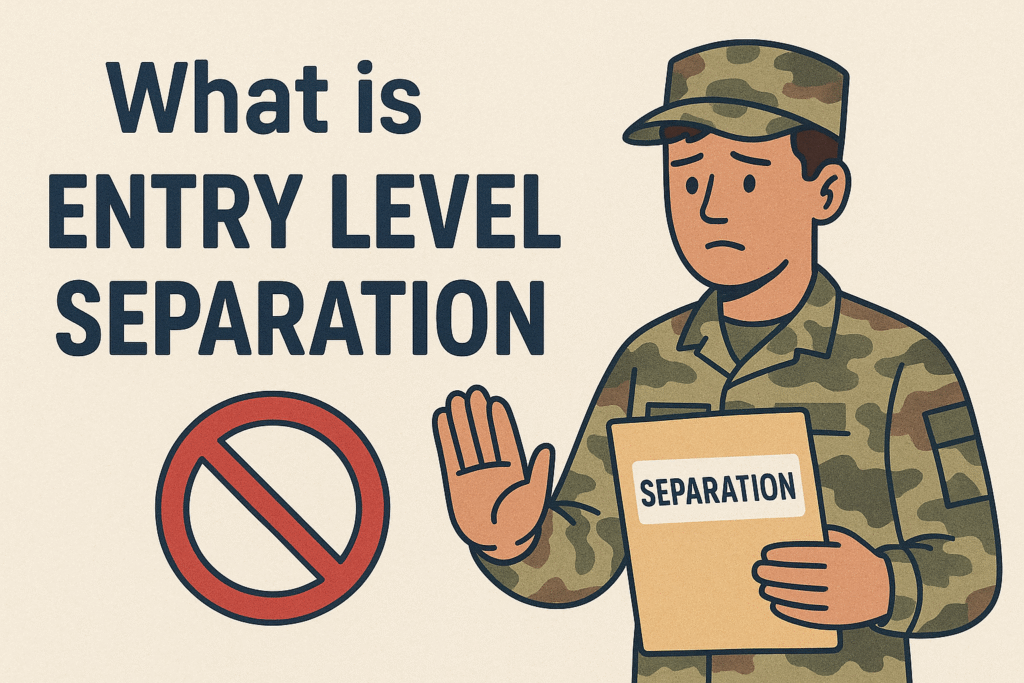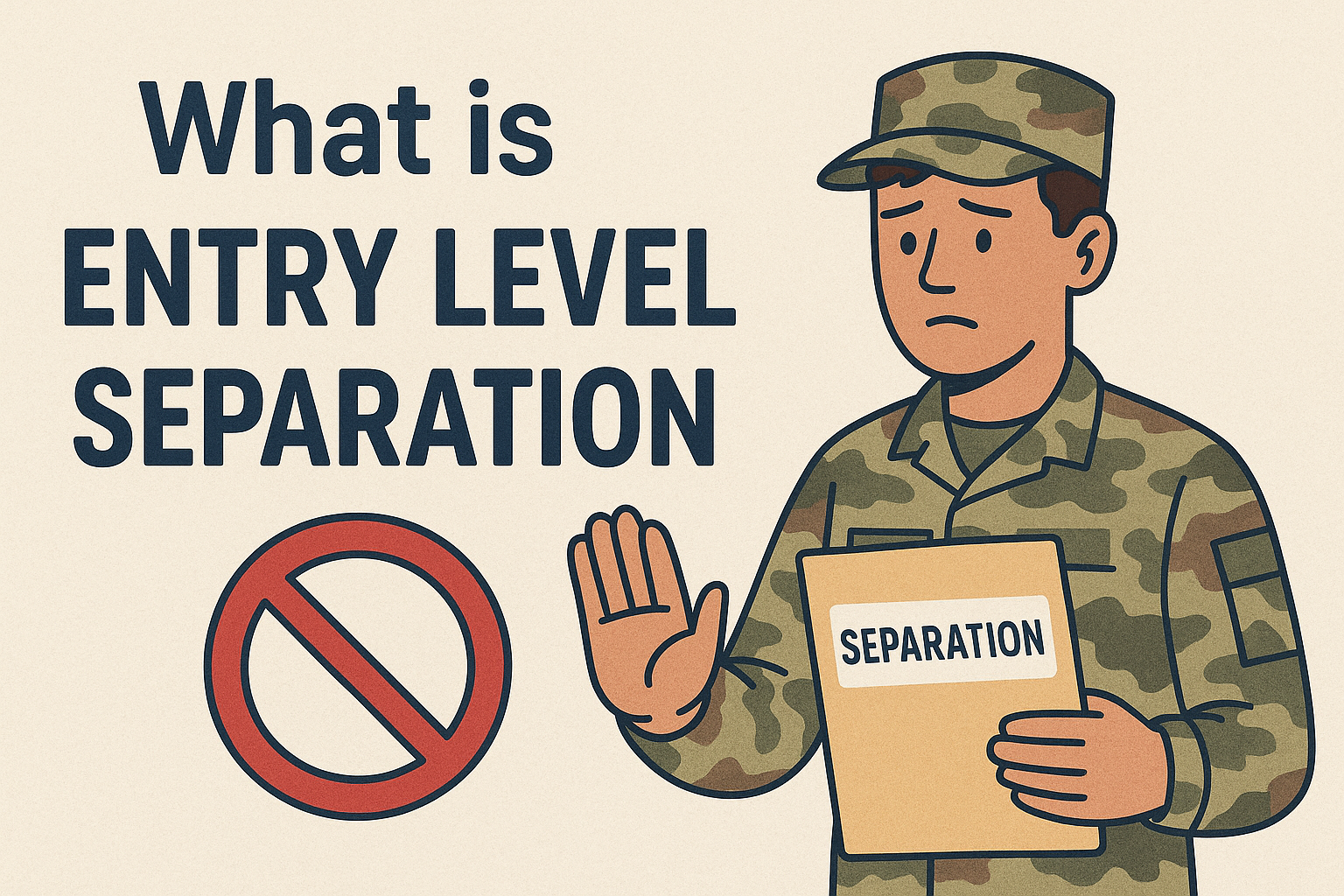Entry Level Separation (ELS) is a discharge from military service prior to completing basic training or initial entry training. ELS is a process by which military recruits can voluntarily separate from service without any further obligation.
Entry Level Separation (ELS) allows military recruits to separate from service before completing basic training or initial entry training, providing a way for them to be discharged voluntarily without any further obligations. This option is available for recruits who wish to leave the military early.
ELS is a process that allows individuals to opt out of their military commitment and is typically granted within the first 180 days of service. During this time, recruits can request separation due to various reasons such as personal reasons, medical issues, or failing to meet the basic training requirements. ELS ensures that individuals who realize military service is not for them have an opportunity to exit early.
Understanding Entry-Level Separation
In the military, Entry Level Separation (ELS) refers to the separation of a service member from their military career during their initial training phase. This typically occurs within the first 180 days of service and is different from a medical or administrative discharge. An ELS is categorized as an uncharacterized discharge, meaning it does not reflect in any way on the service member’s overall military record.
Definition Of Entry Level Separation
An Entry Level Separation is a discharge from the military that occurs within the initial training phase and is uncharacterized, meaning it has no bearing on the service member’s record.
Reasons For Entry-Level Separation
There are several reasons why a service member may undergo an Entry Level Separation. Common factors include failure to meet basic training requirements, medical conditions that become evident during training, issues with behavior or discipline, or personal reasons that lead the individual to choose separation.
Impact Of Entry Level Separation On Military Careers
Since an Entry Level Separation is uncharacterized, it typically does not have a significant impact on a service member’s future military career. However, it is worth noting that an ELS can impact certain benefits, such as GI Bill eligibility, and may require the individual to repay any bonuses received.
Eligibility For Entry Level Separation
Entry Level Separation (ELS) is a term used in the military to refer to a discharge given to individuals who have completed less than 180 days of active duty service. This type of separation is generally not considered a form of punishment and may be granted for various reasons, such as failure to meet the required standards or potential for further growth and development.
Eligibility for ELS is determined by several factors, including the individual’s military service record and performance. Requirements for ELS may vary depending on the branch of service but generally involve a review of the individual’s conduct, proficiency, and adaptability.
Exceptions and special cases exist where individuals may be granted ELS even if they have served over 180 days. These may include medical or physical conditions, personal hardships, or other extenuating circumstances. The appeals and reconsideration process for ELS allows individuals to request a review of their separation if they believe it was unjust or based on incorrect information.
| Requirements for Entry-Level Separation |
|---|
| Review of conduct, proficiency, and adaptability |
| Consideration of extenuating circumstances and special cases |
| Opportunity for appeals and reconsideration |
Types Of Entry Level Separation
Entry Level Separation (ELS) is a type of military discharge given to individuals who fail to complete their committed initial training period. It is a way for the military to separate recruits who are not suited for service early on and allow them to leave without incurring a full military service obligation. There are different types of ELS, each with its consequences and impact on future benefits and opportunities.
| Type of ELS | Description |
|---|---|
| General Discharge (GD) | A GD is given to individuals who fail to meet the required standards of performance and conduct. It is an administrative discharge that may have some negative implications on benefits and future employment. |
| Honorable Discharge (HD) | An HD is given to individuals who have completed their initial training period but are allowed to separate voluntarily or due to personal or medical reasons. It grants the recipient full benefits and recognition of service. |
| Other Than Honorable Discharge (OTH) | An OTH discharge is given to individuals who have engaged in misconduct or committed serious offenses. It may result in the loss of benefits, employment difficulties, and limitations on future opportunities. |
| Bad Conduct Discharge (BCD) | A BCD is given as a punitive discharge by a court-martial for certain serious offenses. It carries significant consequences, including loss of benefits and difficulties in obtaining employment. |
| Dishonorable Discharge (DD) | A DD is the most severe type of discharge and is given as a result of a conviction by a general court-martial. It permanently tarnishes the individual’s military record and carries serious stigma and legal implications. |
It is important to understand the implications of Entry Level Separation and the different types that exist. The type of discharge received can have a significant impact on future benefits, employment prospects, and overall reputation.
Consequences And Benefits Of Entry Level Separation

Entry Level Separation (ELS) refers to the process by which a service member is released from their contractual obligations before completing basic training or further advanced training. ELS can have significant consequences and benefits for individuals in terms of their future employment opportunities.
One of the main impacts of Entry Level Separation on future employment opportunities is that it may limit the individual’s eligibility for veteran benefits. In most cases, individuals who receive an ELS are not eligible for VA healthcare, education benefits, or other support programs available to veterans. This can have long-term implications for individuals seeking to utilize these benefits for themselves or their dependents.
Another consequence of Entry Level Separation is the potential impact on reenlistment eligibility. Individuals who receive an ELS may find it more difficult to reenlist in the military in the future. Reenlistment eligibility criteria vary depending on the branch and individual circumstances, but an ELS can raise questions about an individual’s fitness for service and may be taken into consideration by military recruiters.
In summary, Entry Level Separation can have both positive and negative impacts on individuals. While it allows individuals to leave military service before completing training, it may limit future employment opportunities and eligibility for veteran benefits. It is important for individuals considering an ELS to carefully weigh the consequences and benefits before making a decision.
Steps To Take Following Entry-Level Separation
Documenting and Retaining Military Records: It is essential to thoroughly document and retain your military records after an entry-level separation. This includes keeping copies of any written communication, evaluations, performance reports, and other relevant documents. These records may be useful if you ever need to provide proof of your military service or address any potential issues that may arise.
Seeking Legal Advice and Assistance: In some cases, it may be beneficial to consult with a legal professional specializing in military law. They can provide guidance and support in navigating the complexities of an entry-level separation, ensuring that your rights are protected and that you have a clear understanding of your options.
Exploring Education and Career Opportunities: Following an entry-level separation, it is important to explore education and career opportunities that align with your skills and interests. Research different educational programs, vocational training, and career paths that may be available to you. Take advantage of resources such as transition assistance programs offered by the military to help you make informed decisions about your future.
Frequently Asked Questions For What Is Entry-Level Separation
What Is Entry-Level Separation?
Entry Level Separation, also known as ELS, is the process by which a service member is dis-enrolled from military training within 180 days of enlistment.
Can I Request Entry Level Separation?
Yes, you can request Entry Level Separation if you have valid reasons such as medical conditions or personal hardships.
How Long Does The Entry Level Separation Process Take?
The Entry Level Separation process usually takes around 30 to 60 days to complete.
Will Entry Level Separation Affect My Benefits?
Entry Level Separation may have an impact on your benefits depending on the specific circumstances and length of service.
Are There Any Consequences Of Entry Level Separation?
Entry Level Separation may lead to certain consequences, such as the loss of GI Bill benefits and the need to repay any benefits received.
What Are The Possible Grounds For Entry-Level Separation?
Grounds for Entry Level Separation include failure to meet physical or mental health standards, misconduct, fraudulent enlistment, or failure to adapt to military life.
Conclusion
Entry-level separation is a term used in the military to describe the process of an enlisted individual being discharged before completing their initial training period. It can occur for various reasons, such as failed physical fitness tests or disciplinary issues.
It is important to understand the implications of entry-level separation and how it can affect a person’s military career. By knowing the significance of this term, individuals can make informed decisions about their future in the armed forces.
Ismail Hossain is the founder of Law Advised. He is an Divorce, Separation, marriage lawyer. Follow him.





Leave a Reply